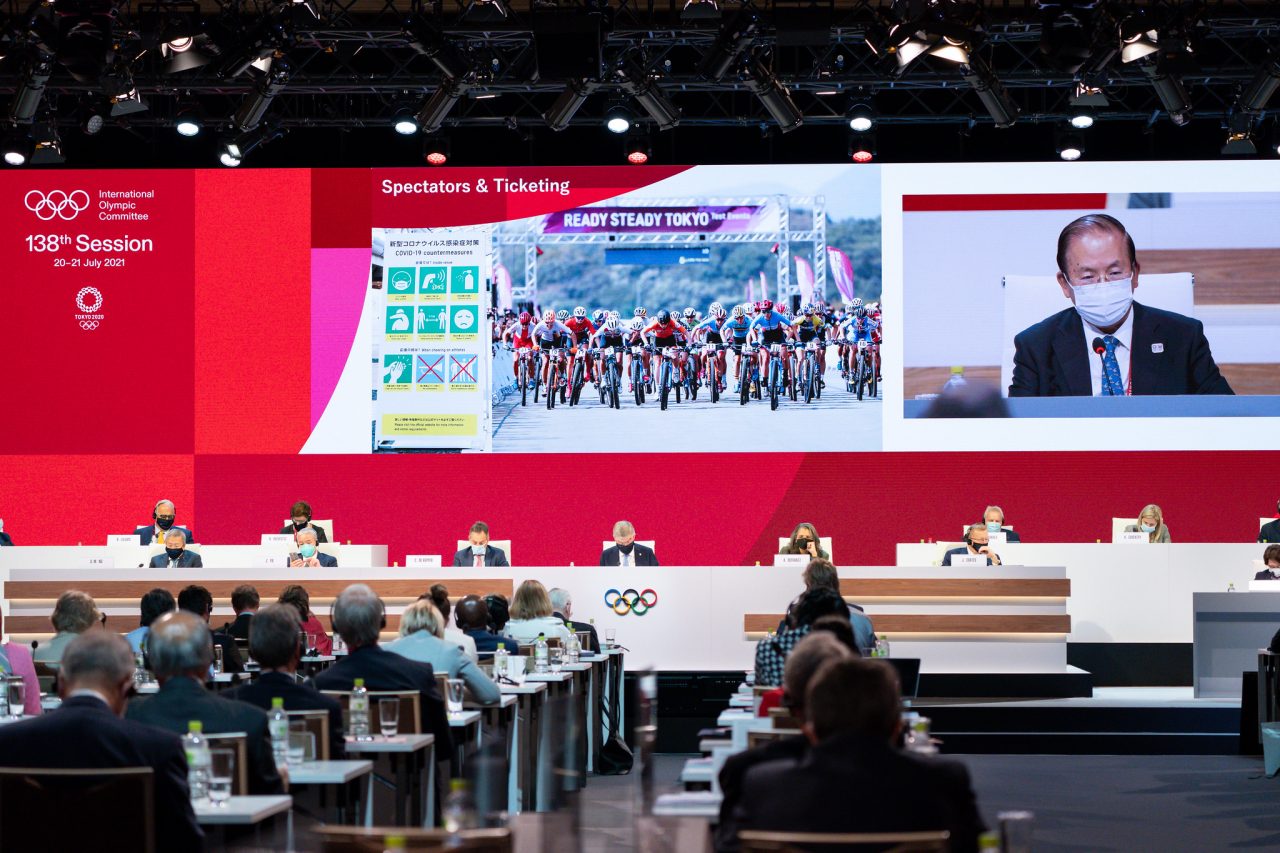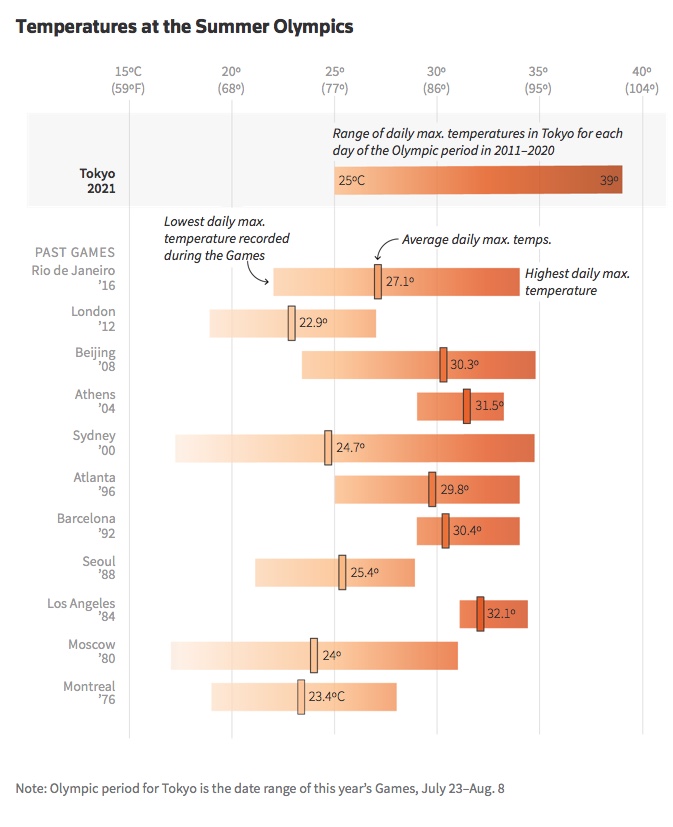Many readers will consume energy the next few weeks determining how and when to watch the Tokyo Olympics. The summer games feature 339 events in 33 different sports. Its Exhausting on many levels.
FasterSkier covers the winter side of the Olympics, which begin on February 4th, 2022 in Beijing, China. But, we’re here to glance at the Olympics in the news.

The news coming out of Tokyo are the Covid-19 cases popping up here and there amongst foreign nationals entering the country for the Olympics. Those trends are compounded by a steep uptick of cases among Japanese citizens. As of July 19th, total cases in Japan approached levels not seen since January – a month often associated with easier transmission of colds and flu.
The New York Times reports this morning that three positive cases have been detected at the Olympic Village. Over twenty more athletes have tested positive outside those accommodations. The messages projected from stakeholders in Tokyo are mixed. Three days ago, International Olympic Committee chief, Thomas Bach, asked the Japanese Prime Minister to reconsider allowing some spectators if the pandemic improves over the short term. For now, spectators are banned from all competitions. Today, Toshiro Muto, head of the Tokyo Organizing Committee, said in a press conference, that if conditions worsen considerably the 2021 Games could be shuttered, but that the further decisions about the 2021 Games would be discussed in “five-party talks.”
With the persistence of Covid-19, variable access to vaccines, and a choice from some with access to the vaccine to forgo immunization due to safety concerns, the virus will likely be around in February 2022.
China is not Japan. There are many layers to that statement. Media, including the Internet, feels the heavy hand of state control in China. So data coming from China regarding Covid-19 infection rates should at least be viewed with eyes wide open. The Johns Hopkins University dashboard, an excellent resource monitoring global infection and vaccination rates, shows China’s situation contrasts Japan’s. According to the Johns Hopkins Covid-tracker, China reported 65 positive cases on July 19.
The regime in China also wields iron-fist power. It is likely that its ability to regulate the movement of its citizens during the Winter Games, especially if cases begin to spike next winter, is real. Despite China’s vastly larger population and geographic breadth, what is occurring in Japan now does not necessarily equate to a similar situation in Beijing when its time for China to host.
Heat and the Summer Games
For those interested in high performance, you’ve likely monitored stories and research regarding training and racing in high temperatures and high humidity. Tokyo, if trends persist, should offer both conditions in the upper end of the spectrum. Reuters published an excellent infographic exploring the weather conditions athletes are likely to experience during the Olympics.

1964 was the last time Tokyo hosted the Summer Olympics. Back then, October was the chosen month for competitions. October in Japan presents markedly cooler average temperatures than late July and mid-August.
You can find the Reuters infographic here.
The Politics of Sport
As the Summer Olympic quad comes to a close, the corresponding think-pieces about the Olympic movement have sprouted. One of many treatments on the topic, which is titled Let the Games … Be Gone? comes from the NYT’s John Branch. The subtitle, After bidding scandals, human rights outrages, overburdened host cities, rampant cheating, a pandemic — and, sure, thrilling competitions — has the world had enough of the Olympics? speaks to the central thesis of his argument. Branch, known as a deft wordsmith, writes about sports for the Times.
You can find Branch’s piece here.
Branch quotes many of the most outspoken reformers we have heard from before, including former cross-country skier Noah Hoffman, and icon Edwin Moses.
This brings to mind efficient ways to take a deep dive into the politics of international sport, including the murky world of anti-doping.
It’s now been over a month since the release of the Global Athlete podcast, which Hoffman hosts. In full transparency, Hoffman is a friend, and we have covered him widely at FasterSkier.
If you are looking for lighthearted sports banter, look elsewhere. This podcast trends towards policy wonkishness, with just the right amount of detail for the keen fan or observer of the Olympics. So far, the podcast has delivered. A high-point episode for FasterSkier readers should be Episode 3: Current Athlete Representation Models with Beckie Scott and Han Xiao.
Scott is a retired Canadian cross-country skier who won a gold medal at the 2002 Winter Olympics after the top-two finishers were disqualified for doping. Scott went on to work in anti-doping advocacy as Chair of the World Anti-Doping Agency Athlete Committee and was an IOC member after being elected to the organization’s Athlete’s Commission.
Jason Albert
Jason lives in Bend, Ore., and can often be seen chasing his two boys around town. He’s a self-proclaimed audio geek. That all started back in the early 1990s when he convinced a naive public radio editor he should report a story from Alaska’s, Ruth Gorge. Now, Jason’s common companion is his field-recording gear.



